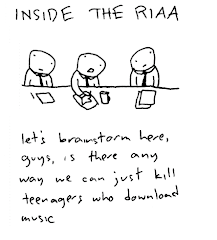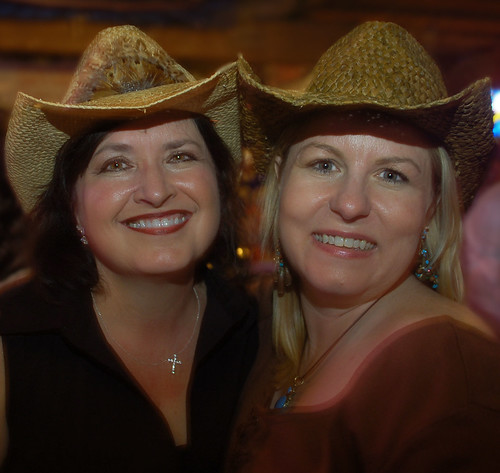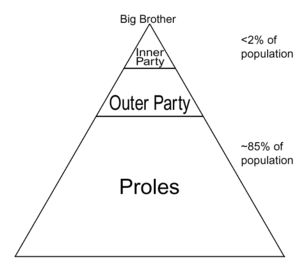 Jim: Sometimes, like right now, I feel like I don't have a single real connection with another person. I'm alone at the end of a day and I center myself, usually with some music I know well, and it dawns on me that every exchange is a show, a charade. Being with people is like seeing how long I can hold my breath underwater before I have to come up for air. And I can hold my breath for a long time. My underwater dance is well rehearsed after 45 years. But I'm always somehow relieved when the contact is over; when I re-surface, sometimes okay, sometimes with the bends, into my natural state. Alone. Can the two states be integrated? Can I be the Jim I know so well alone but in the company of others? Or is the Jim I know the product of these interactions that can feel so unnatural sometimes. Maybe the unnatural superficial feeling is natural. I feel like I'm in a dance where people and their words try to fit together into a conversation.
Jim: Sometimes, like right now, I feel like I don't have a single real connection with another person. I'm alone at the end of a day and I center myself, usually with some music I know well, and it dawns on me that every exchange is a show, a charade. Being with people is like seeing how long I can hold my breath underwater before I have to come up for air. And I can hold my breath for a long time. My underwater dance is well rehearsed after 45 years. But I'm always somehow relieved when the contact is over; when I re-surface, sometimes okay, sometimes with the bends, into my natural state. Alone. Can the two states be integrated? Can I be the Jim I know so well alone but in the company of others? Or is the Jim I know the product of these interactions that can feel so unnatural sometimes. Maybe the unnatural superficial feeling is natural. I feel like I'm in a dance where people and their words try to fit together into a conversation.  Their bodies try to fit into a feeling of home. I am never relaxed. Though sometimes I'm numb which can feel like peace of a sort but I fear that I am tricking even myself into thinking these relationships of mine have substance. Maybe I don't have anyone that I'm really close to at all. There's an actual feeling that swells in my chest sometimes that feels like it contains the truth. Has it trapped. And I can almost always swallow it away. Especially as I've gotten older. The only time it bursts is once or twice a year when I cry uncontrollably for about 5 minutes, usually because of a song, or after the last beat of a movie. Always alone. How can I know if I'm living right? Maybe this is the normal feeling of living alone, with no human immersion. Maybe if I did have a family, with inescapable intimacy, I would be making the opposite observation. I thrive on my solitude. I walk around and groove on being a creature of earth. The fewer obligations, the more free and relaxed I feel. But solitude is weird. What is a real human connection? It gets scary sometimes.
Their bodies try to fit into a feeling of home. I am never relaxed. Though sometimes I'm numb which can feel like peace of a sort but I fear that I am tricking even myself into thinking these relationships of mine have substance. Maybe I don't have anyone that I'm really close to at all. There's an actual feeling that swells in my chest sometimes that feels like it contains the truth. Has it trapped. And I can almost always swallow it away. Especially as I've gotten older. The only time it bursts is once or twice a year when I cry uncontrollably for about 5 minutes, usually because of a song, or after the last beat of a movie. Always alone. How can I know if I'm living right? Maybe this is the normal feeling of living alone, with no human immersion. Maybe if I did have a family, with inescapable intimacy, I would be making the opposite observation. I thrive on my solitude. I walk around and groove on being a creature of earth. The fewer obligations, the more free and relaxed I feel. But solitude is weird. What is a real human connection? It gets scary sometimes.Bob: That is how I felt when I lived alone. I suspect it is our real state of mind, who we really are. When we have family or close circles of friends, the public world they create around us distracts us from our private existence. Alone, we are immersed in the loud stream of consciousness that is utterly about us alone. We need social, external 'noise' to get us out of ourselves. But that doesn't change what's inside or what our real state is. When the anthropologists tell us man is a
 social creature, one who can go mad in solitude (hence, the deadly power of solitary confinement), they're saying that the true disconnection that we feel is real and potentially deadly. We are alone. You are not crazy, you are correct. And that's what being alone is sometimes so great: because it is the truth. Writers are alone, if they're any good, especially when they write. When they're not writing and just walking around in the world, they feel less stressed but also less real. What's really interesting is the widespread effort to fight this truth. The whole tradition of the social novel; institutions like marriage, 'teams,' church, nation, etc. You can see the truth bubbling along in the nineteenth century in romantic poetry, then coming to the fore in the modern novel where individual characters and their consciousnesses become the center of the story. Great stuff. What's behind it is probably the fact that the human consciousness has evolved to the point where it doubles back on itself. The fall of man is sometimes characterized as the fall into consciousness, meaning self-consciousness: we create a self, etc. etc.
social creature, one who can go mad in solitude (hence, the deadly power of solitary confinement), they're saying that the true disconnection that we feel is real and potentially deadly. We are alone. You are not crazy, you are correct. And that's what being alone is sometimes so great: because it is the truth. Writers are alone, if they're any good, especially when they write. When they're not writing and just walking around in the world, they feel less stressed but also less real. What's really interesting is the widespread effort to fight this truth. The whole tradition of the social novel; institutions like marriage, 'teams,' church, nation, etc. You can see the truth bubbling along in the nineteenth century in romantic poetry, then coming to the fore in the modern novel where individual characters and their consciousnesses become the center of the story. Great stuff. What's behind it is probably the fact that the human consciousness has evolved to the point where it doubles back on itself. The fall of man is sometimes characterized as the fall into consciousness, meaning self-consciousness: we create a self, etc. etc. Jim: Wow. Right. The doubling back part. I know you've read a lot of books on the subject and I've dabbled. The more I think about it the harder it is to participate fully in society. I'm always there and above "there" at the same time. Like a camera two with me as the cameraman trained on me. This happens when I'm alone as well. Ultra-awareness. Maybe this is what the Buddhists are onto. Ditching the self. But not in those words :-) The 'state' sure depends a lot on the institutions and people's faith in them. That's what makes it a state. Which isn't necessarily a bad thing but what an insane goal in the first place; to organize individuals into one defined entity beyond the scale of the immediate tribe.
Jim: Wow. Right. The doubling back part. I know you've read a lot of books on the subject and I've dabbled. The more I think about it the harder it is to participate fully in society. I'm always there and above "there" at the same time. Like a camera two with me as the cameraman trained on me. This happens when I'm alone as well. Ultra-awareness. Maybe this is what the Buddhists are onto. Ditching the self. But not in those words :-) The 'state' sure depends a lot on the institutions and people's faith in them. That's what makes it a state. Which isn't necessarily a bad thing but what an insane goal in the first place; to organize individuals into one defined entity beyond the scale of the immediate tribe. Bob: Yes. They talk about 'bare attention,' meaning attending to something without thinking about the process of attending, taking the attending self out of the experience. It's probably a good way to feel more at ease in the world but it's also a trick you're playing on the truth about ourselves, a drugging of the consciousness. We are who and what we are and I'd rather be that, have all my switches turned on. Less peaceful but more real, more here, more alive, more authentic, etc. etc.
Bob: Yes. They talk about 'bare attention,' meaning attending to something without thinking about the process of attending, taking the attending self out of the experience. It's probably a good way to feel more at ease in the world but it's also a trick you're playing on the truth about ourselves, a drugging of the consciousness. We are who and what we are and I'd rather be that, have all my switches turned on. Less peaceful but more real, more here, more alive, more authentic, etc. etc. A Friend, a third voice : As one who has cultivated solitude for many years in the absence of any social faculties, this resonates with me. And with my sizable entourage of companions, confidants, aides and sycophants, VISIBLE ONLY TO ME. Interestingly I have been reading more medieval history and it is frequently pointed out that privacy and solitude (and by extension, a sense of the private self) are very recent concepts, that there was no such thing as alone-time then save for royalty and perhaps shepherds.
A Friend, a third voice : As one who has cultivated solitude for many years in the absence of any social faculties, this resonates with me. And with my sizable entourage of companions, confidants, aides and sycophants, VISIBLE ONLY TO ME. Interestingly I have been reading more medieval history and it is frequently pointed out that privacy and solitude (and by extension, a sense of the private self) are very recent concepts, that there was no such thing as alone-time then save for royalty and perhaps shepherds. Bob: Which makes the monasteries interesting to think about. Monks sought out solitude but not to get closer to themselves but to get closer to God: for them 'bare attention' was getting them closer to God. Paying too much attention to self was alienating them from God. So in a way they were also unwittingly a part of the conspiracy to hide the truth. It must have been harder, since they had very little social world to distract them from self, just the brothers. And when they practiced vows of silence...man that just made it all harder. Your friend is right: the emergence of the self and private experience and individual identity really is the essence of the rise of modern culture. Who benefits from this most? Who gets the collection plate bounty that The Church used to get? Shrinks, writers of self-help books, Oprah. Neuroticism is the sign that you're okay, that you get it. Happiness is the new illness...or error.
Bob: Which makes the monasteries interesting to think about. Monks sought out solitude but not to get closer to themselves but to get closer to God: for them 'bare attention' was getting them closer to God. Paying too much attention to self was alienating them from God. So in a way they were also unwittingly a part of the conspiracy to hide the truth. It must have been harder, since they had very little social world to distract them from self, just the brothers. And when they practiced vows of silence...man that just made it all harder. Your friend is right: the emergence of the self and private experience and individual identity really is the essence of the rise of modern culture. Who benefits from this most? Who gets the collection plate bounty that The Church used to get? Shrinks, writers of self-help books, Oprah. Neuroticism is the sign that you're okay, that you get it. Happiness is the new illness...or error.






















































































.jpg)



































































































4 comments:
Love this Jim! In fact, I was alone all day thinking about being alone and if I should feel guilty for liking it so much.
I am with you on this.
Road trip round 2 in 2 weeks. Alone again...
or(cue banjo)..."on the alone again," "just can't wait to be on the alone again..."
you seem to have captured the essence of what we are: NOTHING
But then of course we are relationally connected, whether we can feel it or not, held by, silently nourished by :EVERYTHING
Happy Paradox!
While privacy may be a recent phenomenon at home, my guess is that most medieval folk spent the bulk of their time alone, working in the field. Harvest was the special time when the community got together bringing home the sheaves. Homelife? Most peasants lived with their animals (and fleas) as well as the often multi-generational family. try being to tired to think - or have another brewski.
You are not alone in your thoughts on this subject. Even when I am with my family or am fraught with social obligations, I think about the other side when I am free. As I see my husband and daughter commingling with our neighbors in old-fashioned stoop convos, I am relieved to escape to my books or my music or the world of images when I take photos. I seek out people on my own terms and in my own way, but I do enjoy the stillness of early morning or twilight, when I come out from under my existence and just be.
Elizabeth K.
Post a Comment